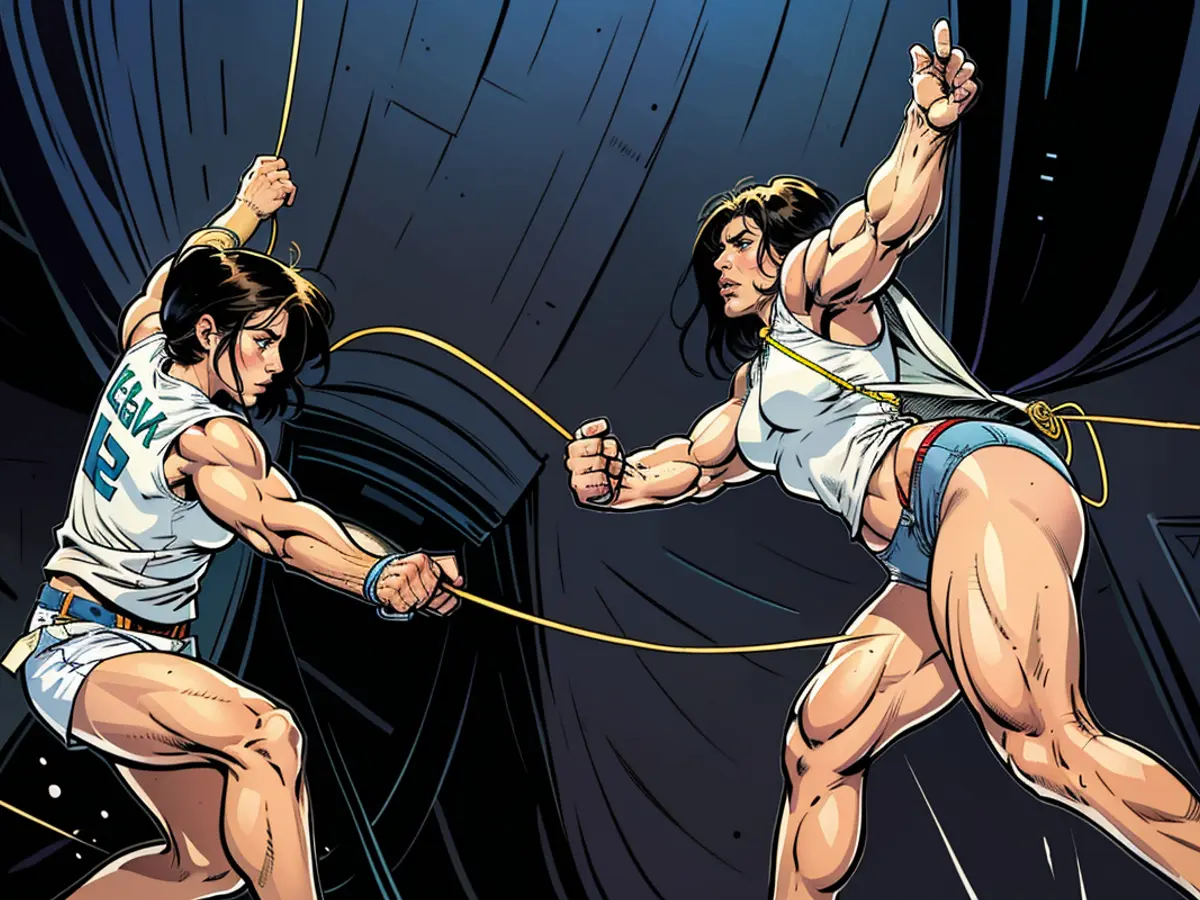Germany will become the Olympic fencing dwarf
For the third time in a row, German fencers have come up empty-handed at the Olympics. The sports director speaks about the major upheaval - and expects no quick turnaround. What's going wrong with the once successful German fencers?
Anne Sauer couldn't hold back her tears. The impressive setting in the elegant Grand Palais had given her "the goosebumps," said the florett fencer. But in the end, she was disappointed. The German Fencing Federation (DFeB) will still be waiting for an Olympic medal for at least another four years. According to the sports director, it could even take longer. He hopes that by the Games in 2028 in Los Angeles, we'll have a larger team, he said, Tobias Kirch. "But I believe that it will take us at least eight years to really be successful again."
What's wrong with the once successful German fencers? With the smallest Olympic squad since 1952, they traveled to Paris - with just two athletes. A day after sabre fencer Matyas Szabo's dramatic loss to Egyptian Ziad Elsissy, Sauer also fell short in the quarterfinals against Italian Alice Volpi.
"I confirmed my performance. But a surprise would have been nice too," said Sauer, who had been hit on the head. After a brief check by a doctor, she was able to continue, but couldn't prevent the loss. Like in 2016 in Rio de Janeiro and 2021 in Tokyo, the DFeB was once again without a medal. The last medals were won in 2012 in London, when Britta Heidemann took silver with the sabre and the men's florett team took bronze.
"Old times will never come back"
"The downward trend has been observable for many years," said Kirch before the picturesque backdrop of the Grand Palais. And there are various reasons. We're in a transition, and we've already made both structural and personnel changes, explained the sports director, who has been in office since May 2023. But it takes patience. And introspection.
"Old times will never come back. We need to look at how we can be successful under the new conditions," said Kirch. What he means by that: German fencing successes are certainly still possible, but the conditions for achieving them have changed. "Twenty years ago, the world of fencing was still a different one," explained Kirch. "It was still very European. Meanwhile, the whole world - including under professional structures and attractive incentive systems."
International competition is gearing up
The international competition has not only caught up but has even surpassed the Germans in certain areas. "When people talk about what Germany used to be in fencing, from my perspective, apples are being compared to pears," said sabre fencer Szabo after his third Olympic participation. He doesn't want to diminish the achievements of past athletes, but the situation today is simply different than it was then. When he sees, for example, "how much money the athletes in South Korea earn and what's being invested in the sport there, it's no wonder they're first in the world rankings and win the Olympic gold medal," Szabo said after the sabre final by Oh Sanguk. Other nations are also attracting athletes with scholarships.
The German fencers face challenges such as a lack of youth development and fewer financial resources than before - their path is rocky. Maybe they've taken a break from the successes of the past. "The Federation must ask itself some tough questions," admits sports director Kirch and assures: "He's doing that now." To take on more than a supporting role on the Olympic stage in four years in Los Angeles or at the latest in 2032 in Brisbane.
Despite Germany's fencers failing to win an Olympic medal at the Olympic Games 2024 in Paris, Tobias Kirch, the sports director, remains hopeful for a turnaround by the 2028 Games in Los Angeles. He anticipates a larger team, but believes it will take at least eight years for Germany to regain its fencing success.
The international competition in fencing has significantly evolved, with nations like South Korea investing heavily in the sport, offering attractive incentives, and yielding impressive results. This shift in the global fencing landscape, as noted by Matyas Szabo, has made it challenging for German fencers, who are currently facing challenges such as a lack of youth development and fewer financial resources.








